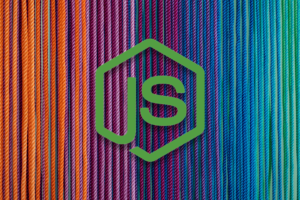Is it Possible to Run NodeJS Code With User Input in Online Compilers?
NodeJS Code With User Input in Online Compilers
Online compilers let developers scribble and debug their code from the comfort of a web browser, eliminating the need for heavy-duty IDE installation. In addition, these tools allow for immediate feedback on coding, reducing the lag between writing a line of code and seeing its result.
This instant feedback is especially crucial for beginners, as it allows them to grasp concepts faster and more efficiently. For example, online compilers highlight errors in real time, making them easy to spot and rectify. On-the-spot debugging also helps keep momentum during long coding sessions.

Compilation is the process of converting JavaScript code into machine-readable instructions (also known as bytecode) that can be executed immediately by a processor. It involves analyzing the code and applying optimizations, such as dead code elimination, constant folding, inline expansion, and others to improve performance.
Is it Possible to Run NodeJS Code With User Input in Online Compilers?
Online compilers offer robust library support, giving programmers an opportunity to work with a broad range of libraries. These tools also feature an intuitive interface that makes it easy for beginner programmers to get started and make progress on their coding journey. For example, these tools provide ready-made templates that help learners kickstart their projects and learn by doing.
The integration of machine learning capabilities within nodejs online compiler is an emerging trend. This includes intelligent code completion, automated bug detection, and even code suggestions based on historical patterns. Machine learning algorithms can analyze vast code repositories to provide developers with insights and recommendations, enhancing productivity and code quality.
Debugging is a crucial aspect of the development process, and online compilers are exploring visual debugging interfaces. These interfaces go beyond traditional text-based debugging, providing developers with graphical representations of their code’s execution flow, variable states, and system interactions. This visual approach simplifies complex debugging scenarios and accelerates issue resolution.
Serverless architecture has gained traction in recent years, and online compilers are integrating support for serverless development. Developers can experiment with serverless functions, deploy them directly from the compiler, and witness the real-time execution of serverless code. This integration streamlines the development of scalable and event-driven applications.
Online compilers are evolving into comprehensive learning platforms. The integration of interactive documentation within the compiler interface allows developers to explore Node.js features, APIs, and libraries in a hands-on manner. This educational aspect empowers developers to deepen their understanding of Node.js while actively experimenting with code.
While the future of online Node.js compilers holds promise, it is essential to acknowledge and address challenges that may arise on this evolutionary path. The Node.js ecosystem is rich with third-party packages and dependencies. Managing these dependencies within an online environment can be complex. Compiler providers are actively working on solutions that simplify dependency management, automate updates, and ensure compatibility, reducing the burden on developers.
Online compilers inherently rely on internet connectivity. However, developers may find themselves in situations where offline development is necessary. Future iterations of online Node.js compilers may incorporate features that allow users to cache dependencies locally, enabling limited offline development capabilities.